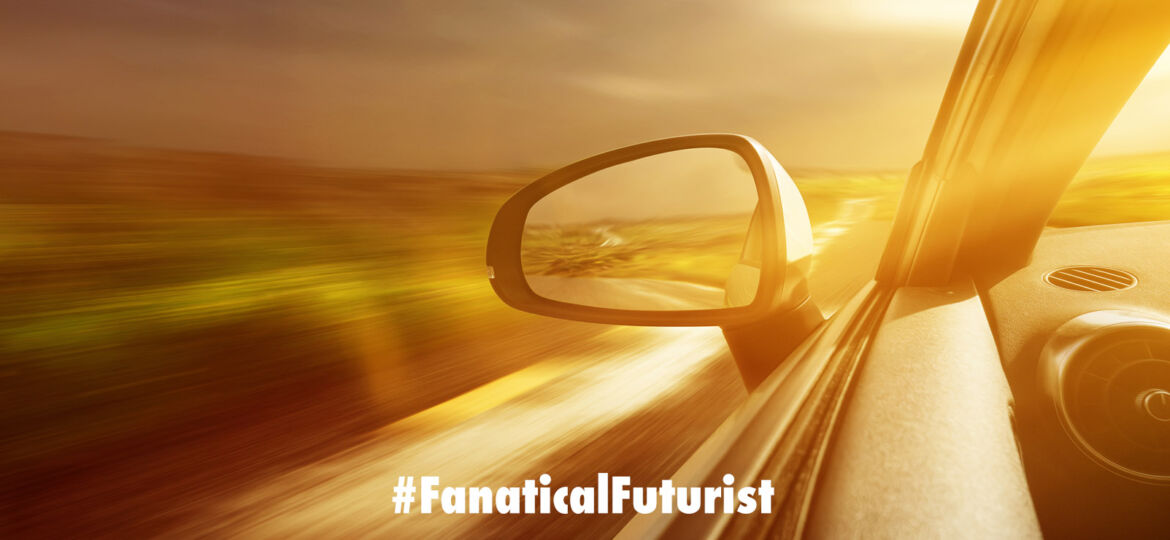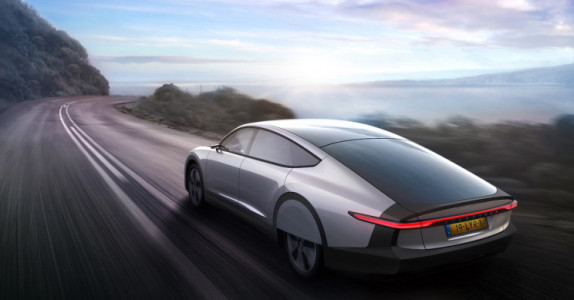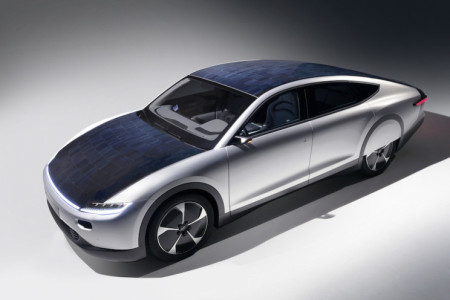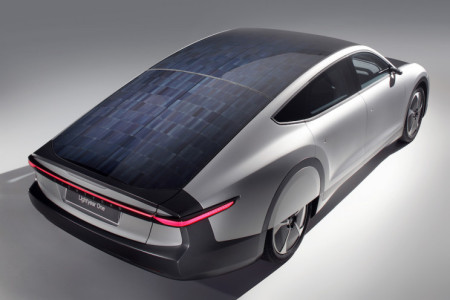
WHY THIS MATTERS IN BRIEF
In the future cars won’t run on batteries, now we have a pathway to create solar panels with up to 80% efficiency the future is battery-less.
 Interested in the Exponential Future? Connect, download a free E-Book, watch a keynote, or browse my blog.
Interested in the Exponential Future? Connect, download a free E-Book, watch a keynote, or browse my blog.
I’ve been saying for a long time now in my keynotes that the use of Lithium Ion (LiOn) batteries in electric vehicles, even ones like Tesla’s that last 1 million miles, will be, by automotive standards, short lived as investment in developing new energy generation and storage technologies accelerates to the point where will soon be able to power EV’s using a variety of alternative technologies such as fast charging polymers, photovoltaic materials and solar panels, like the ones hyundai are already using on their cars and that have a path to 80 percent efficiency, structural batteries that turn the actual car into the battery, wireless charging and many more energy technologies – including one, that is admittedly still a way off, that would let EV’s to travel 16,000km on a single battery charge.
Now though the vision is starting to become reality. But that said I’m going to be careful not to get ahead of myself because by my reckoning we’re talking decades not years to achieve this end goal, because first we have to develop the tech, integrate it, manufacture it at scale, and then commercialise and sell it before we realise the day when cars don’t need to plug into any form of electricity grid.
Courtesy: Light Year
Last week Dutch startup Light Year unveiled a prototype for what they say is “the first car capable of taking us long distances while powered only by the Sun” and it takes, for example, modern car manufacturer’s experiments with solar panels on cars, such as Hyundai and Toyota’s, to the extreme.
Light Yeart’s CEO, Lex Hoeflsloot, said their new prototype, the Light Year One, “represents a new era of driving,” at the car’s unveiling, and in a press release, the company, who are trying to disrupt the relatively new electric car industry, detailed their Light Year One concept, which was first unveiled earlier this year.
The roof and hood of Light Year One are made up of five square meters of integrated solar cells. They are encased in safety glass, “so strong that a fully-grown adult can [safely] walk on them,” the company says.
The car is constructed from light-weight high-tech materials, allowing it to use its power as efficiently as possible. This enables the car to “get the most out of every ray of sunshine,” the designers say.
This, the company says, will enable the car a range of 725 km (WLTP). According to Light Year, their car uses 83 Wh/km (WLTP) and accelerates from 0-100 in ten seconds. Aside from its solar power recharging, the car can also be charged at charging stations and on regular outlets.
Only with sunlight, Light Year One can charge at 12 km/h. With 60 kW fast charging, the car’s efficient charging allows it to charge up to 570 km/h, and the company also assures that the car still meets stringent safety regulations despite its light weight.
At the car’s unveiling, Hoefsloot said: “This moment represents a new era of driving. This is a giant leap towards achieving our mission of making clean mobility available to everyone.”
“The main goal of the car is to fill in where electric cars fall short,” he continued. “Research has shown that range and the lack of charging options are still the top concerns that people have when considering electric cars.”
The Dutch company hopes its solar car idea will help them “leapfrog” the slow-pace of electric vehicle infrastructure building.
Much like more traditional electric vehicles, Light Year’s vehicle was made as a reaction to the effects internal combustion engines have on the climate, and Hoefsloot envisions a future where technology can exist within the laws of nature, without damaging it.
“For centuries, we have lived in balance with nature,” he said. “With the technologies of today, we have the opportunity to do so again. By starting from scratch and using the laws of nature as a guideline, nature becomes our greatest ally in developing ultra-efficient designs.” And by building an electric car that doesn’t need to rely on vast charging networks, he may just be onto something.
Lightyear will be releasing the Lightyear One in 2021. The first 100 cars have already been reserved.




















Thanks a lot!